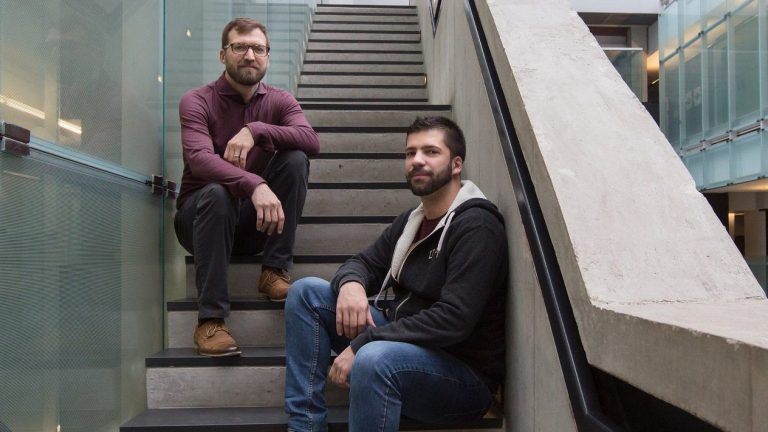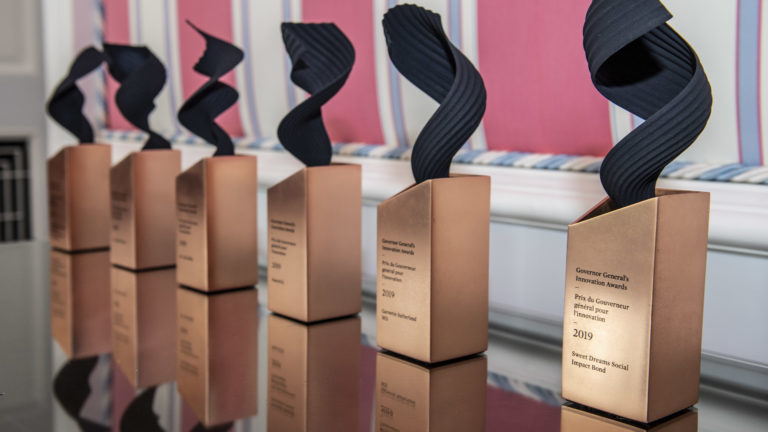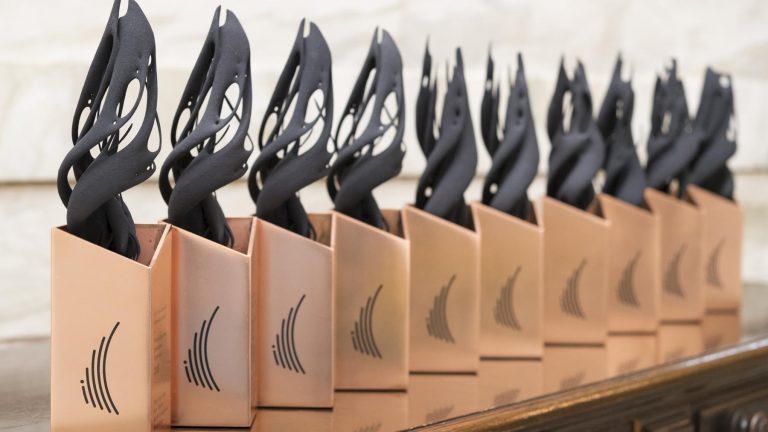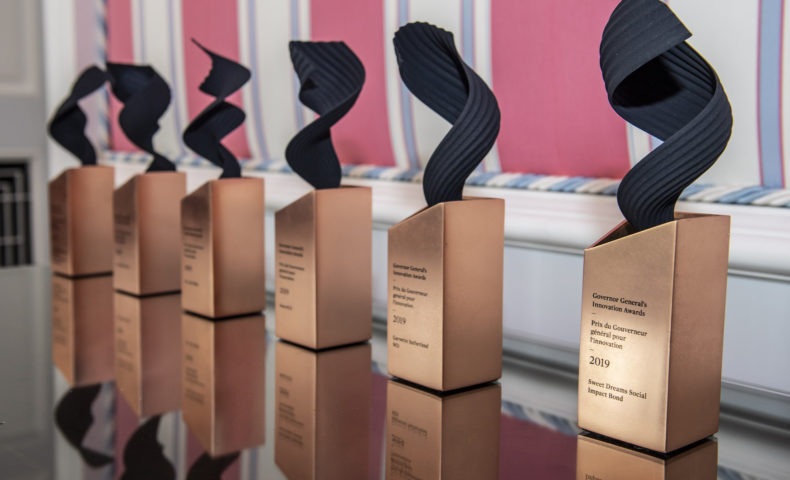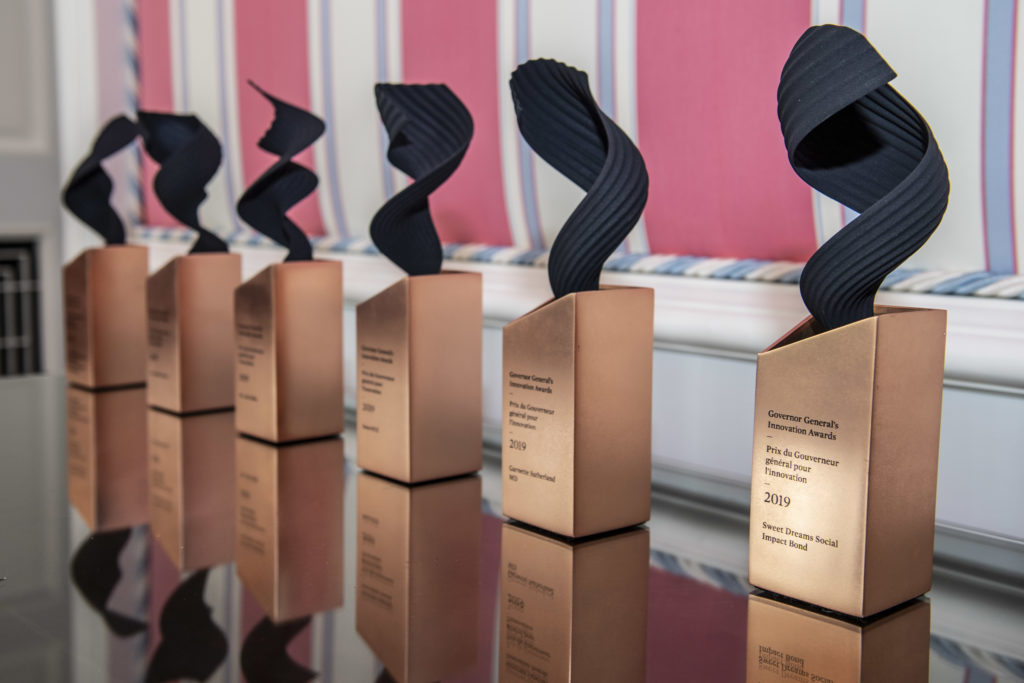
The Governor General’s Innovation Awards recognize and celebrate outstanding Canadian individuals, teams and organizations—trailblazers and creators who contribute to our country’s success, who help shape our future and who inspire the next generation.
Join Falen Johnson, host of Unreserved on CBC Radio One and CBC Podcasts’ The Secret Life of Canada in celebrating the six amazing recipients of this year’s Governor General’s Innovation Awards. From advancements in medicine, engineering and health policy to amazing new techniques in Indigenous language education and charting new routes across the Arctic, find out more about how these exceptional individuals, teams and organizations are helping to shape our future and positively impact our quality of life. Virtual ceremony to be followed by a panel discussion with live Q&A.
RECIPIENTS
Swift Medical: AI Powered Wound Care
(Dr. Sheila Wang)
Dr. Sheila Wang receives the Governor General’s Innovation Award for her leadership in the creation of an artificial intelligence-driven technology for monitoring wound care patients remotely. The technology is being deployed by Swift Medical across North America to help thousands of wound care patients access immediate, virtual wound care while remaining in their own homes.
Nominated by Mitacs
Arctic Corridors and Northern Voices
(Dr. Jackie Dawson, Dr. Natalie Carter, Ms. Natasha Simonee, Ms. Shirley Tagalik)
The team led by Dr. Jackie Dawson and including Dr. Natalie Carter, Ms. Natasha Simonee, and Ms. Shirley Tagalik, receives a Governor General’s Innovation Award for their innovative integration of traditional Inuit knowledge and western science. Their work is leading to the creation of new routes for Arctic shipping that better protect culturally significant marine areas. The project supports national and international ocean policy and has made the region a global leader in self-determined science.
Nominated by the Social Sciences and Humanities Research Council
Distributed Acoustic Sensors
(Dr. Xiaoyi Bao)
Dr. Xiaoyi Bao transformed the field of structural monitoring with her invention of Distributed Acoustic Sensors (DAS), an ultra-sensitive and precise optical fiber-based technology installed in civil structures, and capable of detecting dynamic stress and high and low frequency vibrations indicative of crack formation. Her technology, which has more applications, smaller size, better predictive capacity and cost point, showcases Canada as an innovative force for change on the world stage. Not only is Dr. Bao’s technology saving millions to governments in maintenance, but most importantly, it is helping to protect the environment from oil spills and saving lives by ensuring the integrity of bridges, pipelines, railway and airplanes worldwide.
Nominated by Natural Sciences and Engineering Research Council of Canada
3D Printed Patient Devices for Cancer Treatment and Radiotherapy
(Dr. James Robar)
Dr. Robar is being recognized for integrating 3D printing into the treatment of skin, breast, head/neck and gynecological cancers. The software, now being deployed by Adaptiiv Medical Technologies Incorporated at leading cancer centres worldwide, enables the design of patient-specific radiotherapy accessories that improve treatment accuracy and patient experience.
Nominated by the Discovery Centre
International Tobacco Control Policy Evaluation (ITC) Project
(Dr. Geoffrey T. Fong, Dr. David Hammond, Dr. Mary E. Thompson)
With the persistent leadership of Dr. Geoffrey T. Fong, the ITC Project, centered at the University of Waterloo, is globally renowned for its innovative research supporting and defending effective tobacco control policies such as graphic health warnings, smoke free laws, advertising bans, and tobacco taxes. This pioneering research, across 29 countries covering over half of the world’s population, has led Canada and many other countries to strengthen their tobacco control efforts, improving the health of millions of people worldwide.
Nominated by Canadian Institutes of Health Research
Mi’kmaw Kina’matnewey-Canadian Leaders in Indigenous Education
(Chief Leroy Denny, Ms. Blaire Gould)
In contrast to dominant Eurocentric school systems and in the devastating aftermath of Indian Residential Schools, Mi’kmaw Kina’matnewey, a collective of 12 Mi’kmaq communities in Nova Scotia, has emerged as an education authority that is community-based and Mi’kmaq led. Mi’kmaw Kina’matnewey has achieved this through collaborative governance, effective planning, strategic influence and transformative Mi’kmaq teacher education. The result has been an enabling environment for Mi’kmaq culture, language, and identity to thrive, all while achieving educational outcomes which far exceed national averages for on-reserve and off-reserve education.
Nominated by the Forge Institute

